5 Best Crypto Wallets of 2024
Were you thinking of buying some cryptocurrency? Then, it would be best to choose where to keep it securely. Crypto wallets are a super important tool when buying, trading, and selling cryptocurrencies. You don't want to lose anything you won, so you'd better take the question of a cryptocurrency wallet seriously. In this article, I want to tell you what crypto wallets are, what types they can be, and take a closer look at the five best crypto wallets.
Crypto wallets are not the same as the leather wallet, where you keep your banknotes, but the idea is the same. You need some secure space to keep your coins safe.
As cryptocurrency is not available in the physical form and is more like just digits and code stored on the blockchain with a specific address, users can leverage the public key to help other users send crypto assets. At the same time, you can use a private key to unlock the crypto assets in the wallet.
But, the most significant difference between your brand leather wallet and the crypto wallet is that the security measures of crypto wallets are way better. In reality, crypto wallets never store the actual cryptocurrency. Instead, they ensure the storage of keys to the crypto assets. The crypto-wallet could hold information for connecting individuals to funds to ensure their safety.
So, now that you know what crypto wallets are, let's check how to get one.
How To Get A Crypto Wallet
Before choosing any crypto wallet, you need to ask yourself what you plan to do with your cryptocurrency. Because depending on your answer, the type of crypto wallet varies.
Let me give you some examples. If you are an investor or a creator of NFTs, pick up a wallet that connects to NFT marketplaces such as OpenSea or SuperRare. If you don't want to buy and keep NFTs and need a wallet to store cryptocurrency, Coinbase, Trust Wallet, and Exodus are good places to start. So, knowing your final aim of holding cryptocurrency helps you to choose the best crypto wallet, whether you are an active trader or a conservative investor.
Once you've chosen a crypto wallet, installing it and setting up an account is next. You can download some wallets as an app, set them up as a browser extension, or connect to the websites that support your wallet. The wallet usually involves setting up a password and generating a "seed phrase." The seed phrase usually contains 12 words. If you forget or lose your password, you will need these words to recover your wallet. Remember these stories when people forgot their wallet passwords and couldn't reach their million of cryptocurrencies? This is it. So, it's better to refrain from fooling with the seed phrase. Write it somewhere, email it to yourself, write it on a piece of paper and dig it in your backyard. Just keep it super safe, and please never forget it!
Types Of Crypto Wallets
Typically, all crypto wallets are divided into cold wallets and hot ones. This article will explore three types of wallets: hosted wallets, self-custody wallets, and hardware wallets.
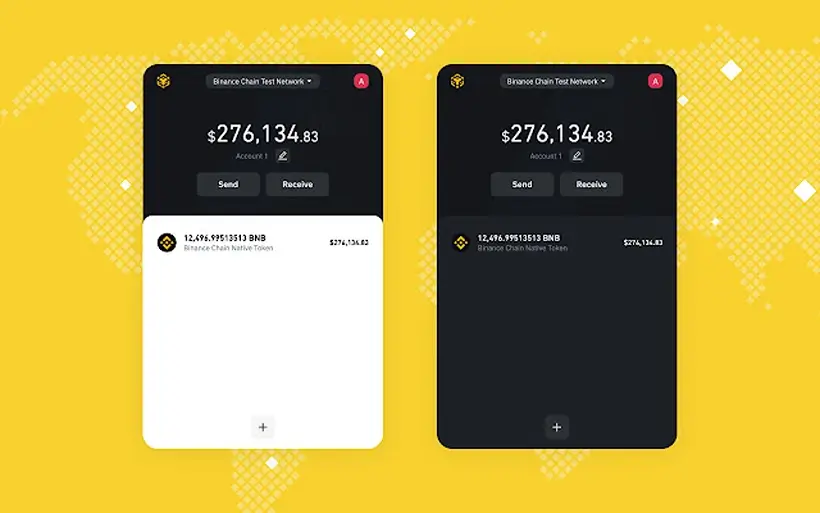
Source: Binance.com
Hosted wallets are easy to set up. When you purchase crypto from an exchange (for example, CoinBase or Binance), you can technically store the crypto where you bought it. That's why it's hosted by a third party that keeps your crypto for you.
This type of wallet is great if the sum of cryptocurrency you keep there is relatively small.
The benefit of such crypto wallets is that the exchanges offer particular security layers. Plus, you won't lose your crypto if you forget your password.
The disadvantage of a hosted wallet is that you can only access some crypto offers.
The best examples are Free Wallet, Binance, BitMex, Bitgo, and Blockchain.com.
Set up a hosted crypto wallet is simple:
- Choose an exchange platform you trust.
- Create your account. (And go through the 2-step verification)
- Then buy or transfer crypto if you already have some. That's it.
Safe-custody wallets can be divided into hot wallets and cold wallets.
Hot wallets include desktop wallets, web wallets, and mobile wallets. All you need to know about hot wallets is that they offer easier accessibility because they are connected directly to the Internet. But, at the same time, they are less secure.
This wallet is an option for well-organized, responsible users, as a self-custody wallet gives you complete control of your crypto. You are responsible for remembering and safeguarding your password by yourself. If you forget or lose your "seed phrase," say goodbye to your crypto savings. There would be no chance to access your crypto wallet. And if someone finds or steals your private key, they'll get access to all your crypto assets.
Why take such a risk? Self-custody wallets allow you to access much more advanced crypto activities such as yield farming, staking, lending, borrowing, and others.
To set up a self-custody wallet, you need to do the following steps:
- Download a wallet app.
- Create your account.
- Write down your private key. It looks like a random 12-word phrase. Remember it forever.
- Transfer crypto to your wallet.
- Cold wallets
Cold wallets are paper wallets and hardware wallets. The last ones are considered the safest, providing better security, yet they are more complicated and expensive.
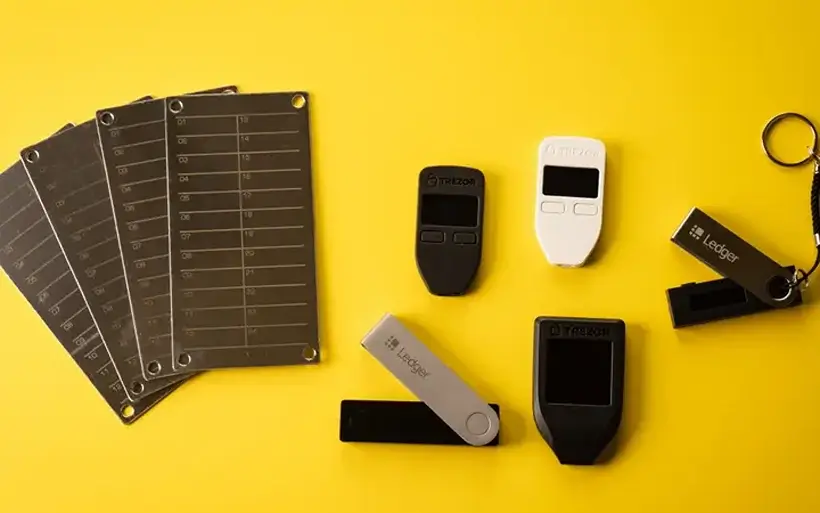
Source: Nataly Gejdos
Hardware wallets are a more complicated and costly option for those who care about the security of their crypto-savings. These wallets can secure your crypto even if your computer is hacked, which is impressive! But you have to pay for such security as it costs up to $100. The most popular hardware wallets are Trezor, NGRAVE, Ledger, and SafePal.
How to set up a hardware wallet:
- Buy the hardware. (Like Ledger and Trezor)
- Install the software.
- Transfer crypto to your wallet.
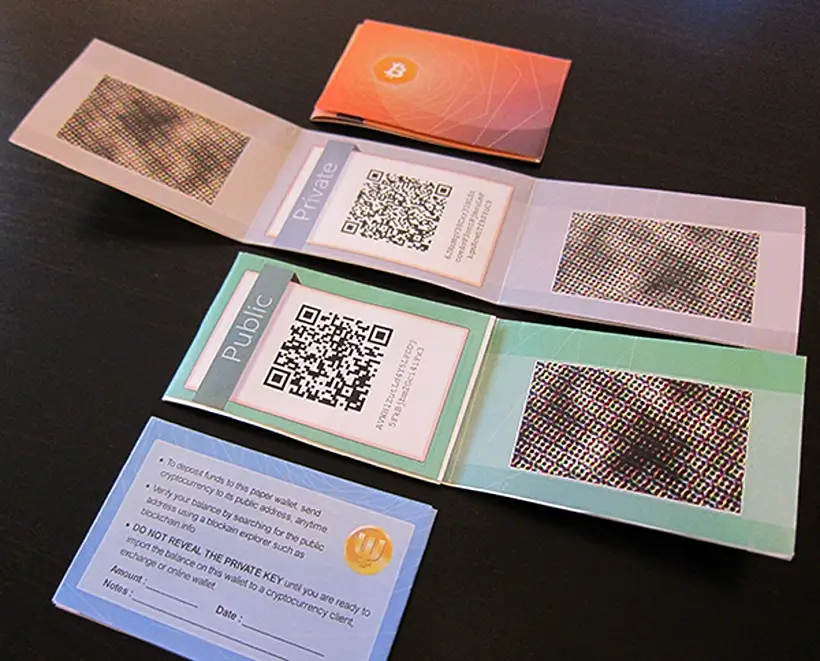
Paper wallets. Source: Bitcoin Wiki
If you are an active trader and plan to trade day-to-day, then accessibility will be hugely important for you, meaning that a hot wallet is probably an apt choice. But investing in a cold wallet may be a good idea if you consider storing a bunch of crypto assets and value security over convenience.
Which one to choose is entirely up to your preferences and needs. Now, let's see which crypto wallets are the best to have.
Top Bitcoin And Crypto Wallets
Why choose Exodus
Advantages:
- The wallet supports more than 145 crypto coins
- Compatible with Trezor One and Trezor T hardware wallets
- Users can pay with Apple Pay
- 24/7 customer support
- It has a built-in exchange
- Available on desktop and mobile
Disadvantages:
- The transaction fees are pretty high on the in-wallet crypto exchange
- There is no native 2-factor authentication
- Also, there is no multi-signature support
- Software isn't open-source
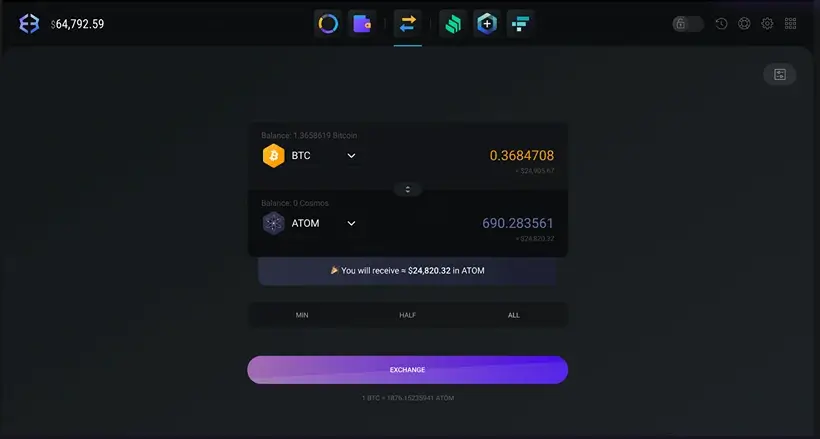
Source: Exodus.com
Exodus was founded in 2015, and since then, this wallet is in the highest rating. Exodus is so popular among crypto investors for its user-friendly interface and speed of transactions. It also looks pretty awesome, having a bright futuristic appearance. This wallet would be an excellent choice for beginners in crypto.,
Exodus supports a significant number of currencies, precisely more than 145 assets! It includes altcoins, like Ether, Litecoin, XRP, and Bitcoin Cash, and popular meme coins, like Dogecoin and Shiba Inu.
Plus, Exodus Wallet provides a range of in-app applications. Its users can earn staking rewards or interest by lending crypto assets and exploring the world of NFTs.
Why choose Electrum:
Advantages:
- Easy to set up
- Better security than other hot wallets
- Two-factor authentication and multi-signature support
- Customizable transaction fees
- Wallets are stable and don't suffer downtime thanks to server configurations
- 10+ years of providing a Bitcoin storage solution
- Open-source code
Disadvantages:
- Only supports Bitcoin trading
- Not user-friendly for newbies
- No customer support via chat, email, and phone
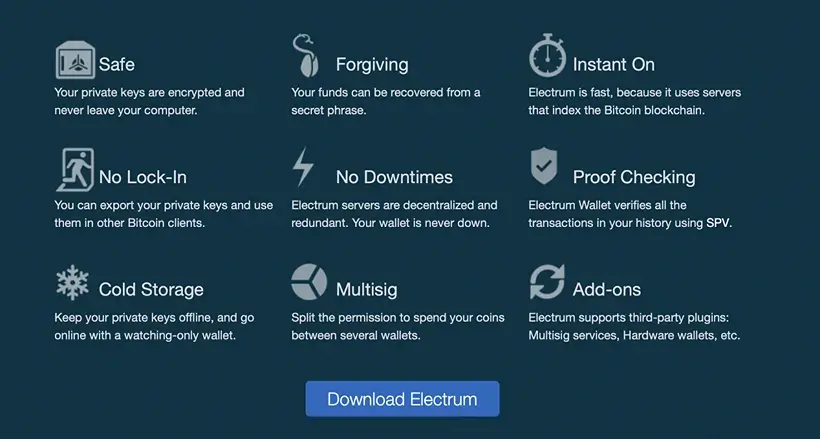
Source: Electrum.org
Electrum wallet was founded in 2011 and is considered one of the oldest and most secure wallets on the crypto market. It's also one of the few remaining crypto-wallets that only deals in Bitcoin. The Electrum wallet has plenty of security features compared to other wallets. You can also manage the speed of your transactions. If you pay more fees, your transaction will be executed faster. Additionally, Electrum allows users to use open payment channels to send and receive bitcoin over the Bitcoin Lightning Network. You can set up Light clients quite quickly, and they take up much less space than traditional wallet clients on your computer.
As I said, Electrum is a wallet for advanced users, offering experienced users some advanced features.
Why choose Mycelium:
Advantages:
- Pretty compatible with popular cold storage solutions (Ledger, Trezor, KeepKey)
- Available HD spending accounts and Single Address saving accounts
- In-app crypto exchange and educational materials
- Offers offline transactions
- Software is open-source
- In-app crypto purchase option
- Cares much about user privacy
Disadvantages:
- Not as secure as hardware wallets
- Not as user-friendly for beginner users as it could be
- Only supports Bitcoin, Ether, and ERC-20 tokens
- Mobile-only
Mycelium is one of the best wallets for mobile usage. It was founded in 2012 by Austria-based Megion Research & Development GmbH. Mycelium is mainly focused on Bitcoin. This wallet is an open-source and noncustodial wallet that supports Bitcoin, Ethereum, and a suite of ERC-20 tokens. The app may not be as convenient for beginner investors. But it provides cool advanced wallet features, such as setting up HD spending accounts, single address saving accounts, and in-depth transaction details.
Why choose Guarda Wallet:
Advantages:
- Highly secure
- It supports 400k+ digital assets, which is enormous!
- Enables users to borrow, earn, and swap crypto
- You can buy more cryptocurrency with dollars or euros from within the app
- Customer service works well
- Face ID authentication for mobile
- Multi-signature wallets
Disadvantages:
- High fees for in-app crypto purchases
- Guarda Wallet is a light wallet, which means users are not running full nodes with this software
- No support for TREZOR or KeepKey hardware wallets
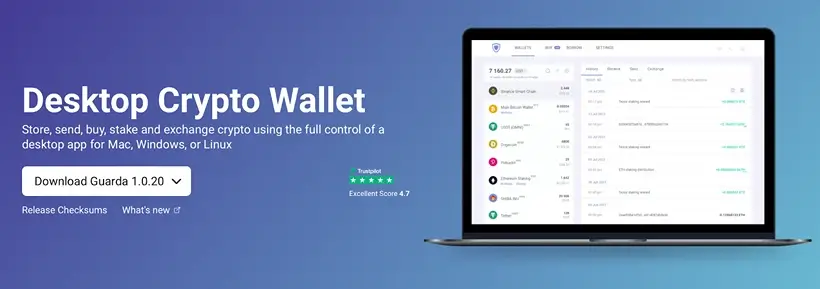
Source: Guarda.com
One more highly secure and user-friendly cryptocurrency wallet allows investors to buy, store, swap, and earn crypto. The Guarda wallet is relatively new on the market but has already won the trust of its users for being convenient and friendly.
This wallet is accessible via a web interface, a Chrome browser extension, a desktop client, or a smartphone. Users can even buy bitcoin and other cryptocurrencies with traditional fiat currency via the wallet's integration with Simplex.
Guarda wallet is known for its security. It is integrated with Ledger devices and allows users to ensure that all of their crypto assets are stored in a highly secure manner, where a hacker cannot access the private keys associated with their crypto holdings from a remote location.
As I said, that wallet supports heaps of crypto assets. Still, if you are primarily focused on Bitcoin rather than a large variety of altcoins, you may want to look elsewhere.
Why choose Crypto.com:
Advantages:
- You can select your preferred trading fee and confirmation speed
- Offers around 100 coins, including BTC, ETH, CRO, ATOM, DOT, and LTC
- You can earn interest on more than 35 tokens
Disadvantages:
- In case you lose your private key and recovery phrase, you can forget about your assets
- Built-in token swap has some geo-restrictions
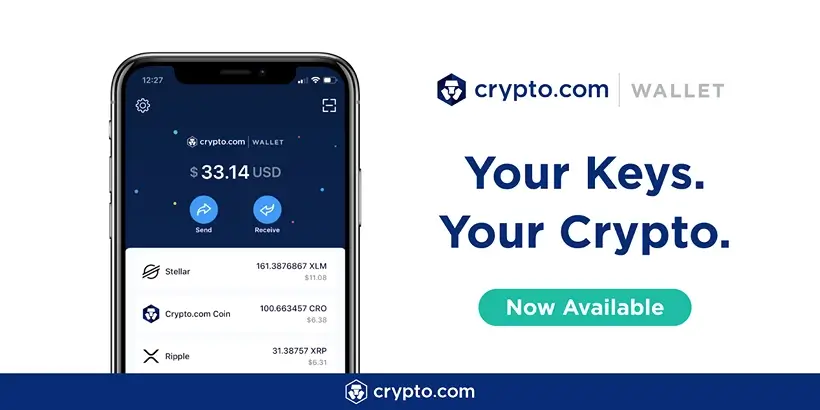
Source: Crypto.com
Crypto.com wallet is the best DeFi crypto wallet with various decentralized finance tools, an excellent onboarding process, and high security.
Defi wallets such as Crypto.com wallet give users complete control over crypto assets and private keys. But this also makes them responsible for keeping it secure.
As with other exchanges that feature both a custodial and a noncustodial wallet, it's important to distinguish between them. The Crypto.com DeFi Wallet may be downloaded and used for users' day-to-day crypto activities without making an account on Crypto.com's exchange.
But please remember that decentralized finance products and services carry significant risks.
Best For Advanced Bitcoin Users
Advanced crypto investors usually prefer cold wallets, which support many crypto assets. In addition to the Electrum wallet, which is excellent for advanced bitcoin users, I would also like to mention several fantastic options:
Ledger Nano X
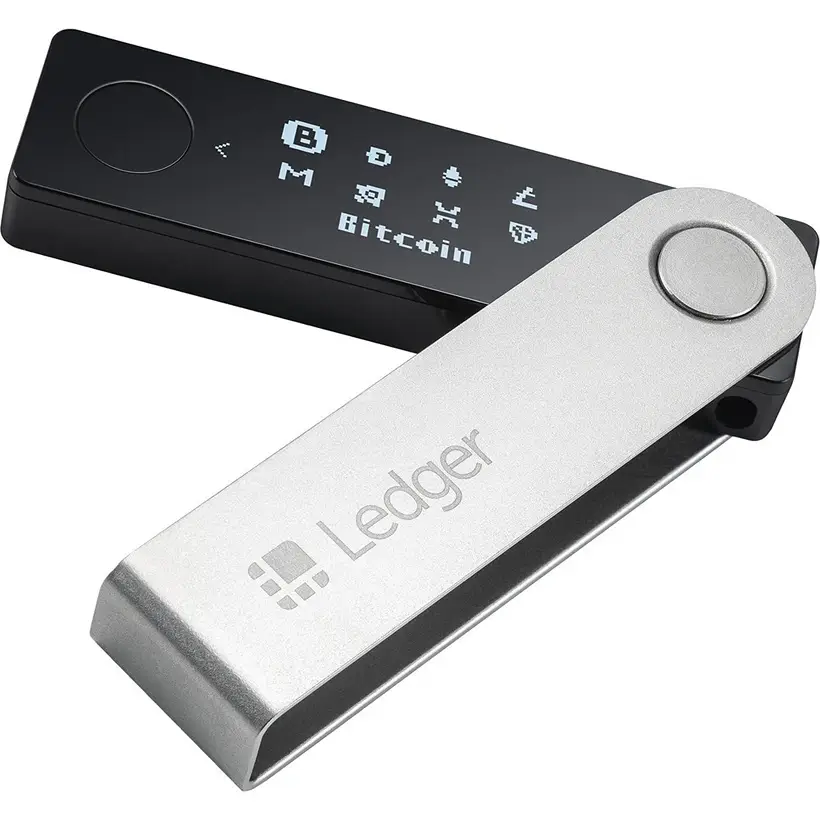
Advantages:
- Supports a vast number of digital assets
- Built with special hardware designed to protect your private keys
- 8 hours of working battery
Disadvantages:
- Price. It is way more expensive than other cold wallets
- No touchscreen
Ledger's cold wallet is trendy among investors for its security, supported number of cryptocurrencies, and mobile trading capabilities. It costs around $110-120 and supports over 1,800 coins and tokens. Ledger cares much about security and uses a specialized chip (which is also used for high-end security solutions - such as credit cards and passports) that protects it from various attacks. The chips have been certified by the Common Criteria EAL5+ process.
Trezor
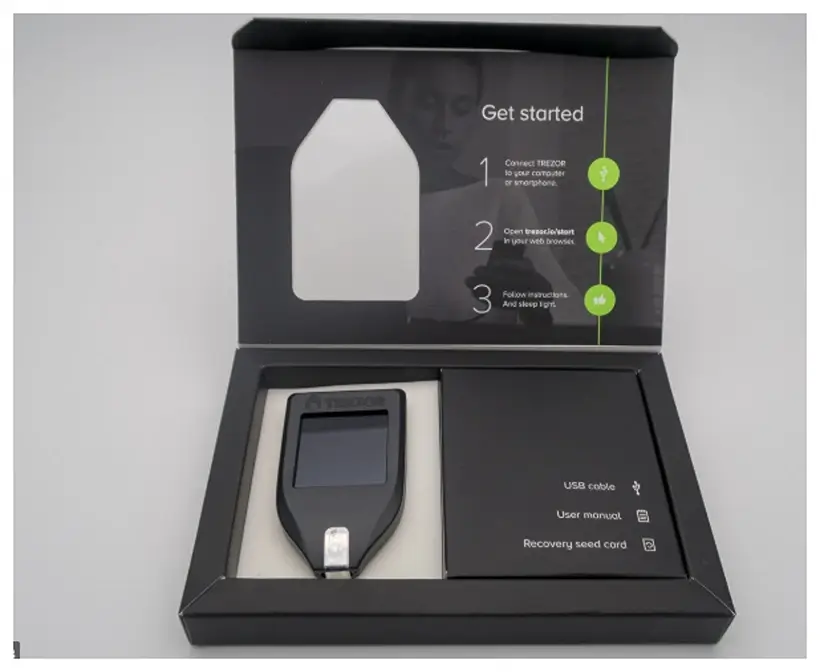
Advantages:
- Supports a vast number of digital assets
- Intuitive and convenient interface
Disadvantages:
- Price. It is more expensive than other hardware wallets with similar functionality
- No support for iOS devices
Trezor is one of the oldest hardware crypto wallets. It is well-known for its security and the many crypto assets it supports.
But if you plan to send and receive funds regularly, Trezor might be slightly inconvenient because you need to have the physical device to authorize the transaction. Finally, Trezor costs around $85.
KeepKey
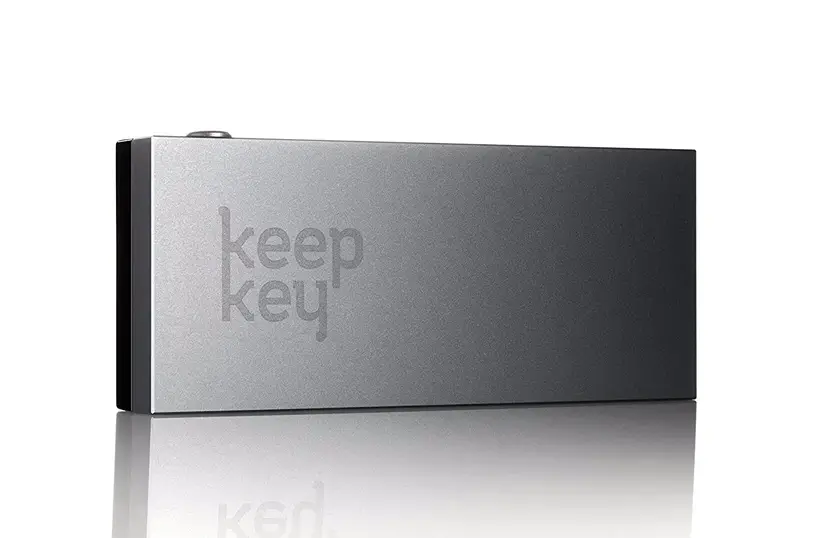
Advantages:
- Good price
- The device display supports QR codes
Disadvantages:
- Poor choice of crypto assets
- Heavier than others
Another hardware wallet with a reasonable price of $49.00. It has an attractive display and interface that is more beginner-friendly than the Trezor and Ledger wallets. The wallet also keeps high-security standards. But users say the wallet itself is rather heavy when compared with competitors.
Best For Beginners
There are also two more wallets that I found remarkable for new investors. Earlier in the article, Exodus and Mycelium wallets are great platforms for beginners. They are user-friendly with good customer support.
Coinbase Wallet
Advantages:
- Super user-friendly interface
- Supports 500 crypto assets
- Multi-signature and 2-factor authentication support
- Optional cloud backups to protect your digital keys
Disadvantages:
- Only available on mobile and tablet devices
Coinbase is a simple hot wallet ideal for beginners. It is easy to use, supports many tokens, and belongs to the popular Coinbase exchange.
Coinbase wallet is also noncustodial, which means that you can keep control over your private keys.
Binance wallet
Advantages:
- User-friendly interface
- Control over your private keys and backup passphrase
- Access to an extensive range of crypto assets
Binance wallet is great for new investors, being easy to navigate or find necessary information. Like the Coinbase wallet, the Binance wallet is a part of a large exchange platform. The platform has heaps of materials for beginners, which help to understand the crypto world better.
Binance is arguably the best Bitcoin wallet for those who want storage and trading services.
Conclusion And Useful Takeaways
Wow, that was a long list to choose from! There are plenty of different types of wallets to choose from. Before you decide on one, consider several factors that help you make the right decision. These factors are:
- Software vs. hardware
- How user-friendly it is
- Fees
- Crypto assets the wallet supports
- Platform compatibility
- Whether you need DApp and DEX integration
- Whether the wallet has backup options
- The wallet's reputation
- The wallet's security
You can always choose both cold and hot wallets to diversify the risks. Good luck with your choice of the right wallet!
